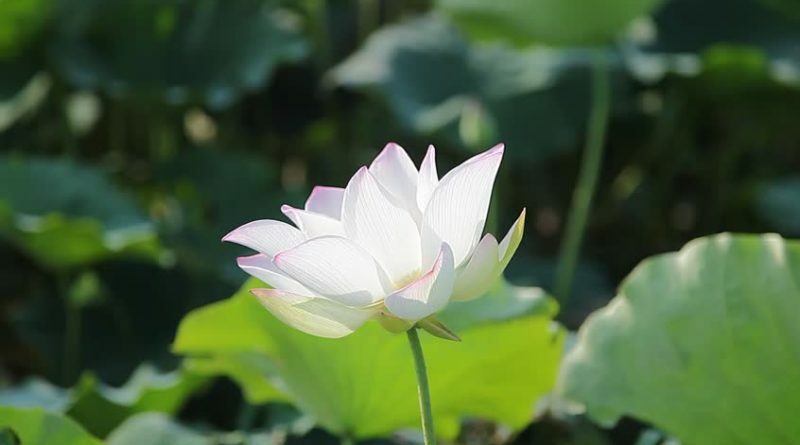SO LITTLE TIME
So Little Time
We have so little time. As the Buddha said, even if you have a long life, it’s a hundred years, which may seem long, but as you’re approaching the end, you look back and it’s nothing. Time eats everything as it eats itself. We’re encouraged to have unlimited mind-states, unlimited goodwill, compassion, empathetic joy, equanimity, but our resources are limited—our time, our energy—which means that we have to choose our issues very carefully.
Notice that after the Buddha’s awakening the issue that he focused on was one that all of us have in common, which is that we want happiness and yet our actions lead to suffering. And unlike some teachers who try to make us embarrassed about our desire for happiness or denounce it as selfish, he said that there’s nothing wrong with the desire for happiness, it’s just that we go about it the wrong way. He also said that if you can focus on this issue and clear up this issue, you take care of everything else.
So we have to look at the issues we carry into the practice—old wounds, old battles, old issues: How many of them are worth carrying or continuing to carry? How many issues can we take on and actually handle properly? We hear about people who find that they only have a few months left to live and they suddenly change their way of living. They get a sense of what’s important to them and what’s not, and they let the unimportant things fall aside. It’s good that they do this, but it’s a shame that they had to wait until the last three months.
As the Buddha said, you should be prepared to go at any time, which means you have to really pare down your issues right now. I was reading a while back about a woman general in the army who every day at the beginning of the day would make a list of the ten most important things that had to be done that day, in order of importance. Then she would strike out the last eight and focus on the first two. The Buddha would have you focus on one: What’s the cause of your suffering right now? Where is your suffering?
This is not a selfish issue to focus on, because if you can’t handle your own suffering, it tends to spill out onto other people. So we owe it both to ourselves and to others to focus on what we’re doing that’s unskillful and have some goodwill for ourselves to see that our desire for happiness is something to be honored, something to be aspired to. But we want to make it a genuine happiness, a solid happiness, a reliable happiness, a harmless happiness. In other words, we really wish ourselves well.
We get practice with the breath. The other day, we were talking about having an issue with being friends with your breath. If you can’t be friends with your breath, how are you going to be friends with anybody? You have to stop and ask yourself, “What’s the problem? Is the breath the problem or is it something else inside?” A lot of us come from other traditions where we’re taught to think very little of ourselves and we either accept that or react in the opposite direction. But neither of those attitudes is helpful. Simply wish yourself well.
As for the question of whether you or anyone else deserves to be happy, the Buddha never talked about “deserving.” He was here to put an end to suffering, whether “deserved” or not. That’s pretty radical. You know the story about Angulimala who had killed 999 people and then, not long after the Buddha taught him, became an arahant. A lot of people like that story. It shows that no matter what your background, there’s hope.
But we have to remember that, at the time, there were a lot of people who didn’t like what had happened and were pretty upset. Here was Angulimala who had killed all these people and he was literally getting away with murder. You could say that he deserved to suffer, but the Buddha didn’t take that into consideration at all. He said, “Here’s a person who’s suffering really badly and his suffering is spilling out and affecting other people.” By curing Angulimala’s suffering, or showing him how to cure his suffering, he saved a lot of other people, too. So if there’s the question of whether you deserve to be happy or not, you learn how to put that aside. Realize that that’s a non-issue.
The issue is that you’ve got actions. The mind is an active principle. This is something Ajaan Mun talked about a lot. As he said, the mind flows out. There’s the source of the mind, like the source of a river. Things keep flowing out, flowing out. And that’s the problem. It’s not that things outside are coming in to cause problems. The problem is in the way we flow out toward things. And it’s not going to stop unless we learn how to do it really skillfully. Our actions are really, really important.
There was a teaching current in the time of the Buddha to the effect that the only real things in the world are the basic elements: earth, water, wind, fire. They had a few other elements as well, but the elements were the only things that existed. Actions were non-existent. Thoughts were non-existent. This also meant that there was no basis for precepts. As they said, when a knife went through somebody’s neck, it just went between the atoms, so there was nobody there to be killed, and the movement of the knife was unreal. Only permanent things were real.
The Buddha’s teachings are the other way around. Your actions are what are real, that have the most reality. The world out there is not the issue. The world that you experience comes from your actions. Your actions are more solid, more powerful than your experience of earth, wind, water, fire, and all the other elements. That’s a pretty radical statement. This is why the Buddha keeps focusing back on what you’re doing right now because what you’re doing right now is the big shaping force in your experience.
And all of us—regardless of our past, regardless of what other people have told us—have the perfect right to learn how to act skillfully, to find happiness. So learn to see the issue of genuine happiness as the big issue. Learn to see the issue of genuine suffering as the big issue, too. They go together. And have some goodwill for your own happiness.
It’s interesting that when the Buddha talks about people who are wealthy but extremely miserly and frugal, he doesn’t say that it’s really good that they’ve learned how to put aside sensual desires. He said there’s something really wrong with them. If they can’t learn how to appreciate some pleasures for themselves, how are they going to appreciate other people’s having pleasure? They’re going to be jealous. They’re going to be resentful. So he does encourage sensory pleasure in moderation. He says there are pleasures that are perfectly harmless for the mind.
You have to look at your own mind, though, to figure out which ones are harmless for you and which ones are not, because it’s not the same for everyone. And then you realize that even though harmless pleasures give some relief to the mind, they don’t leave it fully satisfied. What would be a higher level of pleasure? The word sukha runs everywhere from just plain old physical pleasure, ease, well-being, all the way up to bliss. Nibbana is the ultimate sukha.
The Buddha doesn’t want you to be afraid of pleasure. He says to learn how to appreciate which pleasures are actually helpful for you on the path to the ultimate pleasure, and which ones get in the way. The same with pains: Some pains are helpful for you on the path. You want to learn how to use both pleasure and pain, and not be overcome by either. But the purpose of all this is to create in the mind a state of genuine well-being in concentration.
When you have that well-being, what misery is there to slosh out on other people? For most of us, we’re miserable and we slosh our misery out on others, thinking that we’re lightening our load, but it just makes things worse. Well, you can take care of the source of this sloshing stuff inside. You benefit. The people around you benefit.
When the Buddha taught the four noble truths, they weren’t just four interesting facts about an interesting problem. He said that this is the big issue, the fact that you’re causing yourself suffering but you have the ability to learn how not to. So, given the little time that we have, it’s important that we focus our energy on solving the problem that’s the big problem, the problem that, once it’s solved, gets everything else solved. Look at your attitude toward happiness, look at your attitude toward suffering, and see if you can bring those attitudes in line.
The Dhamma that the Buddha taught is for the purpose of putting an end to suffering and for finding true happiness: These are the issues that are important. Anything that gets in the way of those issues, you can put aside. We read about those people in the time of the Buddha who came to him with this questionnaire: Is the world eternal? Is the world not eternal? Is it finite? Is it infinite? Is the soul the same thing as the body? Is it different? What happens to awakened people after death? Do they exist, not exist, both, neither? And to us the questionnaire looks very bizarre. Yet we tend to have our own issues and sometimes they’re even stranger than that. There was the monk who said he wouldn’t practice the Buddha’s teachings unless the Buddha gave his answer to those questions. The Buddha said, “Well, you’re going to die before you hear me answer those questions.”
We all know the story about the arrow. The man is shot by the arrow and he tells the doctor, “I’m not going to take the arrow out until I’ve found out who made the arrow, what wood it was made out of, what kind of feathers it was made with, and what was the caste of the person who shot me.” The man would die before he learned the answers to those questions. We see other people’s issues as ridiculous in that way. We have to learn to see a lot of our own issues as ridiculous in that way, too—the issues that are getting in the way of our gaining the most from the fact that we’ve been exposed to the Buddha’s teachings and we have the chance to practice them, at least for now.



